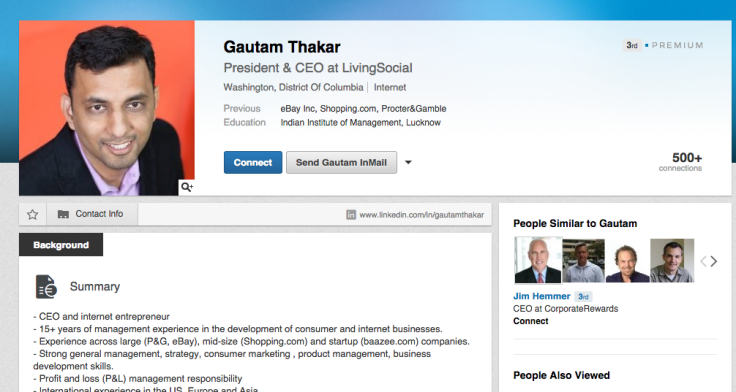LivingSocial Lays Off 400: Daily Deals Business 'Easy To Get Into, Difficult To Run'

Troubling news comes to the social commerce world as the once-giant daily deals site Living Social prepares to shutter its Torrance, California, sales office, leaving some 400 employees — 20 percent of the company's entire workforce — out of a job. The move was made by CEO Gautam Thakar, appointed to his position in July earlier this year, who wrote in a companywide email that the "painful decision" is difficult, "especially given our strong cash position, but one that I feel needs to be made to ensure that we enter 2015 with more focus."
It's clear that the nature of the once-hot daily deals space is changing drastically. Despite Groupon being leaps and bounds ahead of its competitors, this hasn't stopped everyone from Amazon to various local papers throwing their hats into the ring with the aim to compete. How can they all hope to do so?
"It's an easy business to get into, but it's difficult to run," said Arvin Bhatia, analyst at Stern Agee. "Sign a few deals, have a website, and there you go."
The daily deals industry was at one point ostensibly filled with enough opportunity to yield something akin to Facebook-sized success stories of growth. But Groupon stands as the lone giant in the field and it also is not profitable. It has 200 million subscribers and reported an operational loss of $5.4 million on $757.1 million of revenue in the third quarter. Living Social in its most recent quarter reported a loss of $32 million on revenue of $64 million.
LivingSocial recently sold its international business to Groupon.
"Local is a hard nut to crack, and it's different from traditional business. Many companies have found that scaling it requires a touch they don't have. To have thousands of people calling local merchants to understand what they need, that's tough," said Bhatia.
Thakar is still quite new in his post, with not even three full months under his belt at the company, and is implementing some strategic shifts.
"They're shifting the focus away from daily deals," said Bhatia. "They won’t require the same level of sales force. It's a high touch business, and fewer deals means fewer people to call merchants. This seemed inevitable given the run rate of revenue — it was a mismatch for number of employees they had. This is a good decision for the company, but it's unfortunate for the people who lost their jobs."
© Copyright IBTimes 2025. All rights reserved.




















